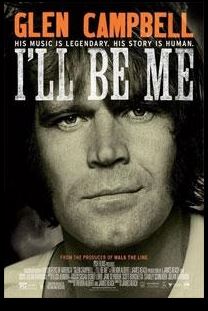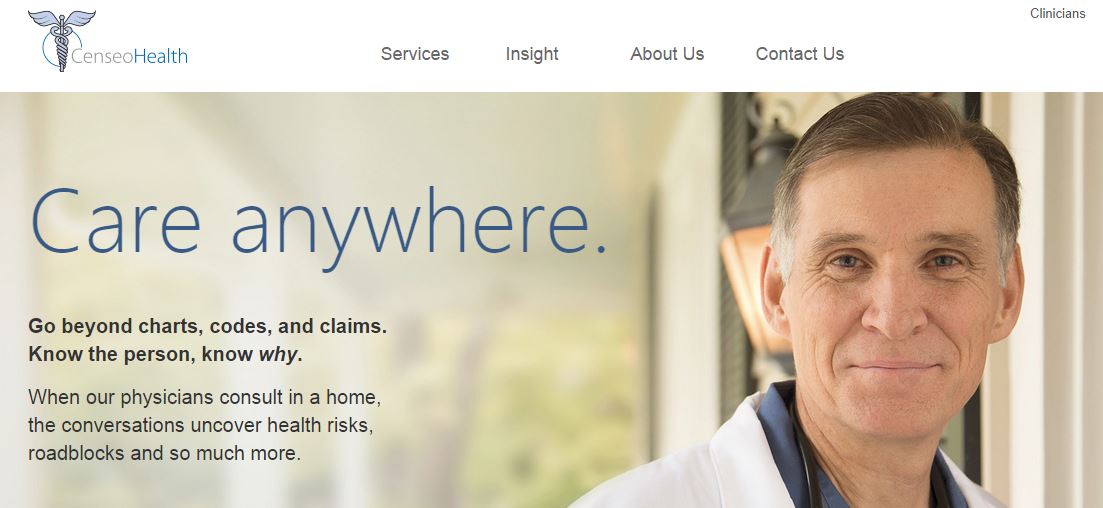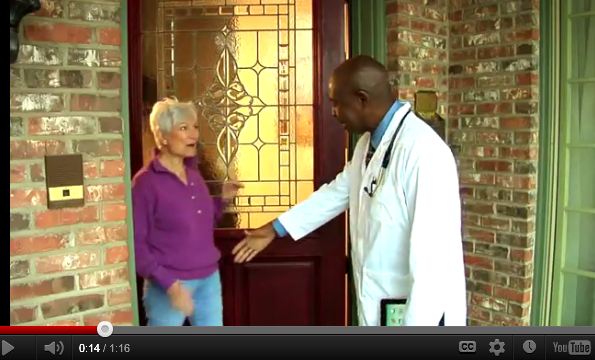October 27th, 2014 by Dr. Val Jones in Announcements, Medical Art
No Comments »
 Country music legend Glen Campbell is dying of Alzheimer’s disease. In an effort to raise awareness of the illness he and his family made the brave decision to bare their lives by creating a documentary of Glen’s farewell tour. I highly recommend that you watch this film with your loved ones… and a box of Kleenex.
Country music legend Glen Campbell is dying of Alzheimer’s disease. In an effort to raise awareness of the illness he and his family made the brave decision to bare their lives by creating a documentary of Glen’s farewell tour. I highly recommend that you watch this film with your loved ones… and a box of Kleenex.
One of the most remarkable aspects of Glen’s disease was the preservation of his musical abilities despite severe cognitive impairment. Although he rarely knew where he was or even how to tie his shoes, he was able to perform songs in front of live audiences. With redirection and prompting, he managed to participate in 151 concerts across the United States within the span of ~18 months. Accompanied by his gifted guitarist son and daughter, and his doting fourth wife Kim, Campbell was able to maintain his musical self for longer than his physicians ever anticipated.
The documentary held nothing back – from violent outbursts brought on by paranoid delusions of golf club theft, to inappropriate table manners, to hypersexuality triggered by too high a dose of Aricept – the trials and tribulations of being a caregiver for someone with dementia were painfully acute. In brief moments of insight, Glen himself would manage to stammer a “Thank you. For being so nice to me. I have been an ass.”
One of the saddest moments of the movie was a brief clip of his daughter testifying before congress. She explains that memories are what lives are made of – and that although she is holding fast to the memories made with her dad, she knows that soon he will not even know who she is, and that their time together will be meaningless to him. Campbell listens silently next to her with a pained expression and misty eyes.
The movie’s final song, artfully strung together from clips of Glen singing repeat phrases into a studio mic, is haunting:
“I’m Not Going To Miss You”
I’m still here, but yet I’m gone
I don’t play guitar or sing my songs
They never defined who I am
The man that loves you ’til the end
You’re the last person I will love
You’re the last face I will recall
And best of all, I’m not gonna miss you.
Not gonna miss you.
I’m never gonna hold you like I did
Or say I love you to the kids
You’re never gonna see it in my eyes
It’s not gonna hurt me when you cry
I’m never gonna know what you go through
All the things I say or do
All the hurt and all the pain
One thing selfishly remains
I’m not gonna miss you
I’m not gonna miss you
Alzheimer’s is a terrible, cruel disease. I share the frustration of the Mayo Clinic neurologists who treated Glen Campbell – unable to do much more than simply document his decline and mentally prepare his family for the next stages of the disease. To all those who are taking care of people with Alzheimer’s I offer my sincere admiration and respect. To those who face a genetically higher-than-average chance of contracting the illness (such as myself), I tremble and hope for a cure.
October 17th, 2014 by Dr. Val Jones in Opinion, True Stories
No Comments »
 Electronic medical records (EMRs) now play a part in the daily documentation routine for most physicians. While improvements in access to patient data, legibility of notes, and ease of order entry are welcome enhancements, there is a significant downside to EMRs as well. Although I’ve blogged about my frustrations with nonsensical, auto-populated notes and error carry-forward, there is a more insidious problem with reliance on EMRs: digital dependency.
Electronic medical records (EMRs) now play a part in the daily documentation routine for most physicians. While improvements in access to patient data, legibility of notes, and ease of order entry are welcome enhancements, there is a significant downside to EMRs as well. Although I’ve blogged about my frustrations with nonsensical, auto-populated notes and error carry-forward, there is a more insidious problem with reliance on EMRs: digital dependency.
The idea of digital dependency first occurred to me during a conversation with a young medical resident at a hospital where we share patients. I was bemoaning the fact that I was being forced to use hospital-designed templates for admission notes, rather than a dictation system or carefully crafted note of my own choosing. She looked at me, wide-eyed and said:
“You’ve worked without templates? How do you even know where to begin? Can you really dictate an entire note off the top of your head? I couldn’t live without templates.”
As I stared back at her with an equal amount of bewilderment, I slowly realized that her thinking had been honed for drop-down menus and check boxes. Over time, she had lost the ability to construct narratives, create a cohesive case for her diagnostic impressions, and justify her patient plan of action. To this bright, highly trained mind, clinical reasoning was an exercise in multiple choice selection. Her brain had been optimized for the demands of an EMR template, and mine was a relic of the pre-EMR era. I was witnessing a fundamental cognitive shift in the way that medicine was practiced.
The problem with “drop-down medicine” is that the advantages of the human mind are muted in favor of data entry. Physicians in this model essentially provide little benefit over a computer algorithm. Intuition, clinical experience, sensory input (the smell of pseudomonas, the sound of pulmonary edema, the pulsatile mass of an aneurysm) are largely untapped. We lose our need for team communication because “refer to my EMR note” is the way of the future. Verbal sign-outs are a thing of the past it seems, as those caring for the same patient rely on their digital documentation to serve in place of human interaction.
My advice to the next generation of physicians is to limit your dependency on digital data. Like alcohol, a little is harmless or possibly healthy, but a lot can ruin you. Leverage the convenience of the EMR but do not let it take over your brain or your patient relationships. Pay attention to what your senses tell you during your physical exam, take a careful history, listen to family members, discuss diagnostic conundrums with your peers, and always take the time for verbal sign outs. Otherwise, what advantage do you provide to patients over a computer algorithm?
Am I a curmudgeon who is bristling against forward progress, or do I have a reasonable point? Judging from the fact that my young peers copy and paste my assessment and plans into their progress notes with impressive regularity, I’d say that templatized medicine still can’t hold a candle to thoughtful prose. Even the digitally dependent know this. 🙂
October 14th, 2014 by Dr. Val Jones in Health Policy, True Stories
3 Comments »
Physicians looking for part-time jobs to supplement their income may have run across advertisements for “lucrative” Medicare Advantage evaluation opportunities at CenseoHealth. Here’s a typical ad:
|

CenseoHealth is the leading Risk Adjustment provider for Medicare Advantage plans – with a network of more than 1,800 credentialed providers conducting over 20,000 member health evaluations a month. Due to our continued growth, we are currently looking to hire in-home physician evaluators to work in these states.
As a CenseoHealth physician, you will meet with Medicare Advantage members in their homes to conduct their annual medical history and physical evaluation.
Additional Information:
-
Conduct evaluations when it’s convenient for you
-
Ongoing physicians can make $3,500 to $4,000 per week
-
Physicians who work 1-3 days per week can make $800 – $2,000
-
Travel and lodging expenses are covered, plus we provide a per diem reimbursement
-
Malpractice insurance is included
-
This position does not require you to prescribe medicine, order lab tests, do blood work, or alter the member’s current treatment regimen
Please contact us, for more information.
Bryan Cooke
Director of Physician Recruiting
P: 972.715.3772
E: physicians@censeohealth.com
|
|
Sounds pretty good, right? Well here’s what they won’t tell you:
1. Low Hourly Pay. Compensation is $100 per completed evaluation – but you have to drive to each member’s house (sometimes an hour each way) to complete a 31 page history and physical exam. Members are often medically complex, cognitively impaired, and/or non-English speaking. In the end (after counting travel time, cancellations, scheduling snafus, and long hours completing paperwork and FedEx shipping) the hourly wage works out to be about $30.
2. Poor Logistics. Members are scheduled back-to-back without regard to distance between their locations. That means you are chronically late, and some members cancel their meeting with you. No-show and cancellation rates (in my experience) are about 20%. You are not compensated for any of the time associated with driving to their location, talking to them on the phone, or otherwise trying to locate them when they are not home upon your arrival. Once a member cancels, you cannot fill their slot with someone else on the same day.
3. Threat of harm. Members mostly come from low to middle class income levels. Some of them live in truly horrific living situations (no electricity, a home overrun with cockroaches, no food or running water), and others are psychologically unstable. As a female physician driving alone into a very rural area to conduct a physical exam on a male patient who is actively psychotic… this can be dangerous. You never know what or who you will face. I have had to call social services on numerous occasions and have narrowly escaped inappropriate sexual advances.
4. Limited Support. There is no guarantee that anyone from the parent company will be available via phone when you call during an emergency. I have called on several occasions during critical situations where I had to leave a voice message and was assured that “my call was very important” and someone from provider services “would get back to me within 1/2 a business day.”
5. Questionable ethics. Schedulers do not explain to the members why you are coming to their home to evaluate them. Because the schedulers seem to work on commission, they often use questionable tactics to get the members to agree to the evaluation – such as telling them that the meeting is “mandatory” and will “take 20 minutes” or is “just a wellness visit.” For this reason, many members receive you with suspicion, wondering if you’re there to try to “throw them off the Medicare plan” or are angry that they were mandated to meet with you. Lengthy conversations and apologies to set the stage for your evaluation are commonplace.
6. Payment denials and exaggerated pay potential. Evaluations must be completed meticulously or the quality assurrance reviewers will reject your forms and you will not be compensated for your work (if you, for example, forget to check a box or use a non-approved abbreviation). Although the advertisements state that some physicians complete 35-45 evaluations per week, that is nearly impossible in areas where clients are not clustered together tightly. It is an extremely misleading statement, in my experience. Apparently online reviewers agree.
7. Glitchy and costly technology. In order to save on costs, electronic evaluations can be completed via an iPad rather than paper forms. Unfortunately, the software often crashes, resulting in a return to paper in the middle of an evaluation. This ends up increasing the amount of time required to complete evaluations as your evenings are spent copying paper records into the iPad program. In addition, you are required to purchase your own stylus for data entry, as well as all the equipment required during your physical exam (e.g. blood pressure cuff, bathroom scale, ophthalmoscope, stethoscope, and more).
8. Low-budget travel and accommodations. While the agency boasts that they will pay for your accommodations and rental car, that typically translates into a room at a low-budget hotel and a Toyota Yaris with roll-down windows and no GPS.
9. The truth is hidden. The real reason for the evaluations is to help health insurers obtain larger reimbursements from the government. A physician (or NP) is required to verify all of the patient’s current medical conditions to justify their “risk score.” Medicare Advantage plans get paid more to manage patients with higher risk scores, so they are very motivated to document the complete list of diseases and conditions per at-risk senior. Patients may benefit from having an objective third party review their health record, but this is not the main goal. Also, it is unclear if the higher risk scores ultimately translate to more benefits and services for the patients.
10. Treated like a number. Sadly, my experience with my recruiter (the person who matches your availability with evaluation needs in various states where you hold a medical license) has been underwhelming. I took the time to make suggestions about how to improve the process for evaluators, but my recommendations fell on deaf ears. Not only were my phone calls and emails not returned, but when I suggested that it didn’t make sense for me to continue seeing members when I had a 66% no-show rate he simply replied, “I took you off the schedule – we have an abundance of FL doctors so it is not an issue.”
Take a look at the lovely marketing promotional images for the job:
And this video of what it’s like to do a home evaluation:
Now take a look at some photos that I took while on assignment (note: these are not actual patient homes, but are very similar to ones I encountered):



Taking a job as a Medicare Advantage evaluator was a real eye-opener. Poverty and chronic illness in America takes on a whole new light when you experience patients’ actual home environments. It’s like being a medical missionary in your own country. I’ve met patients who hadn’t seen a physician in decades, diagnosed life-threatening illnesses, and made sure that care (or case management) was initiated for countless people living on the fringes of society.
I’m glad for the experience – but think that my peers considering similar work should be told the truth about what they will be doing. Being a Medicare Advantage evaluator is not like the shiny “care anywhere” ad suggests – and “lucrative” is not exactly the right adjective for $30/hour for an MD’s time. But if you don’t mind being treated poorly by your employer, investing a lot of your own money in equipment costs, and putting your life at risk in dangerous home environments – you may actually do some good for the forgotten, frail elderly of this nation, (while helping middle men like Censeo Health to profit from health insurance behemoths, alas). Now you know the truth behind the advertising and can make an informed decision about whether or not you’d like to sign up for this work.
Any takers?
 Country music legend Glen Campbell is dying of Alzheimer’s disease. In an effort to raise awareness of the illness he and his family made the brave decision to bare their lives by creating a documentary of Glen’s farewell tour. I highly recommend that you watch this film with your loved ones… and a box of Kleenex.
Country music legend Glen Campbell is dying of Alzheimer’s disease. In an effort to raise awareness of the illness he and his family made the brave decision to bare their lives by creating a documentary of Glen’s farewell tour. I highly recommend that you watch this film with your loved ones… and a box of Kleenex.

















